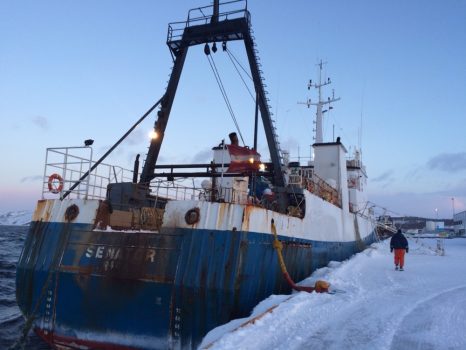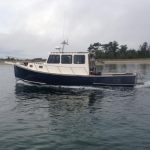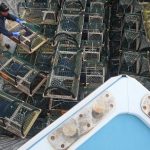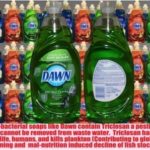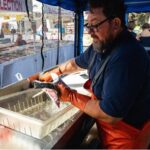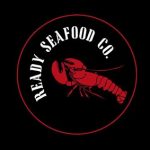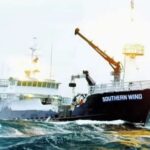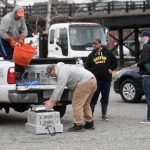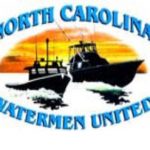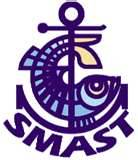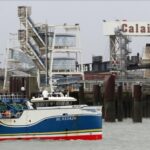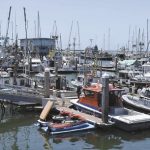Monthly Archives: January 2017
Trump’s nixing of trade pact disappoints Alaska seafood exporters
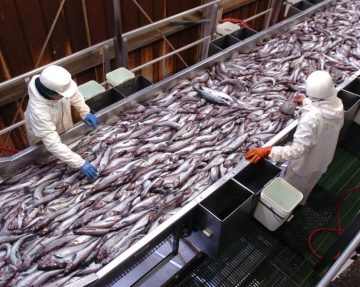 Alaska seafood exporters are disappointed by President Donald Trump’s decision to officially withdraw from a sweeping trade agreement among Pacific nations that would have eradicated import duties imposed by Japan and other countries on pollock and salmon, the two fish species that bring in the most revenue and create the most jobs in the industry. The Trans-Pacific Partnership, which would have been former President Barack Obama’s signature legacy on trade, would have helped the pollock industry by cutting import taxes of 4.2 percent to zero in Japan, the largest consumer of pollock surimi and roe. Japan imports $248 million of Alaska pollock annually. The tariff costs importers $10 million annually in Japan alone for imitation crab, or surimi, and pollock roe, meaning similar products from nations that don’t face tariffs are more price-competitive. Existing tariffs on red salmon imported to Chile, Japan, Mexico and Vietnam also would have been removed, according to the United Nations Conference on Trade and Development. Read the story here 14:21
Alaska seafood exporters are disappointed by President Donald Trump’s decision to officially withdraw from a sweeping trade agreement among Pacific nations that would have eradicated import duties imposed by Japan and other countries on pollock and salmon, the two fish species that bring in the most revenue and create the most jobs in the industry. The Trans-Pacific Partnership, which would have been former President Barack Obama’s signature legacy on trade, would have helped the pollock industry by cutting import taxes of 4.2 percent to zero in Japan, the largest consumer of pollock surimi and roe. Japan imports $248 million of Alaska pollock annually. The tariff costs importers $10 million annually in Japan alone for imitation crab, or surimi, and pollock roe, meaning similar products from nations that don’t face tariffs are more price-competitive. Existing tariffs on red salmon imported to Chile, Japan, Mexico and Vietnam also would have been removed, according to the United Nations Conference on Trade and Development. Read the story here 14:21
Large Whale Seasonal Trap Gear Closure is Effective February 1 – April 30
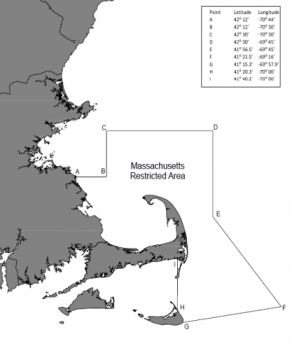 This advisory serves as a reminder to recreational and commercial trap fishermen. The annual large whale seasonal trap gear closure is in effect from February 1st through April 30th. During this period all trap gear must be removed from the . This area encompasses waters of Cape Cod Bay, Stellwagen Bank and the Eastern Cape Cod. A description of the closed area and its coordinates are in the adjacent map and full regulatory text is located at 322 CMR 12.04 and 12.11. This closure was implemented in 2015 under the federal Atlantic Large Whale Take Reduction Plan and subsequently codified in state regulations. Its purpose is to reduce the risk of endangered North Atlantic right whales becoming entangled in trap gear buoy lines while migrating through and aggregating in this important seasonal feeding area. For more information regarding the Large Whale Seasonal Trap Gear Closure and the North Atlantic right whale, please visit our website: www.mass.gov/marinefisheries 13:47
This advisory serves as a reminder to recreational and commercial trap fishermen. The annual large whale seasonal trap gear closure is in effect from February 1st through April 30th. During this period all trap gear must be removed from the . This area encompasses waters of Cape Cod Bay, Stellwagen Bank and the Eastern Cape Cod. A description of the closed area and its coordinates are in the adjacent map and full regulatory text is located at 322 CMR 12.04 and 12.11. This closure was implemented in 2015 under the federal Atlantic Large Whale Take Reduction Plan and subsequently codified in state regulations. Its purpose is to reduce the risk of endangered North Atlantic right whales becoming entangled in trap gear buoy lines while migrating through and aggregating in this important seasonal feeding area. For more information regarding the Large Whale Seasonal Trap Gear Closure and the North Atlantic right whale, please visit our website: www.mass.gov/marinefisheries 13:47
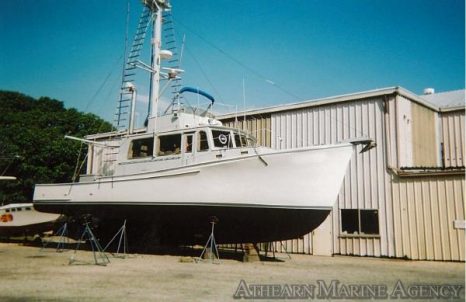
Athearn Marine Agency Boat of the Week: 50′ Duffy Tuna/Charter, CAT 3408, Lister 7.5 KW Genset
Specifications, information and 4 photo’s click here To see all the boats in this series, Click here 12:33
Two more plead guilty to poaching of striped bass 7 years ago in the EEZ
 Two more commercial fishermen have pleaded guilty to federal charges stemming from the illegal catch and sale of striped bass from federal waters nearly seven years ago. The United States Attorney’s Office announced that Ellis Leon Gibbs Jr., 53 of Englehard and Dawyne J. Jopkins, 43 of Belhaven entered the guilty plea Monday on a charge of , which prohibits transporting, selling or buying fish and wildlife harvested illegally. Hopkins also pleaded guilty to obstructing a boarding by the U.S. Coast Guard. A sentencing hearing has been scheduled for April 24, when Gibbs will face up to 10 years in prison and a $500,000 fine, while Hopkins could receive a maximum sentence of five years in prison and a $250,000 fine. Nine local commercial fisherman, including Gibbs and Hopkins, were among a group of 13 from North Carolina and Georgia indicted in March 2015 in a federal investigation into the illegal catch and sale of striped bass in 2009 and 2010. Read the story here 11:36
Two more commercial fishermen have pleaded guilty to federal charges stemming from the illegal catch and sale of striped bass from federal waters nearly seven years ago. The United States Attorney’s Office announced that Ellis Leon Gibbs Jr., 53 of Englehard and Dawyne J. Jopkins, 43 of Belhaven entered the guilty plea Monday on a charge of , which prohibits transporting, selling or buying fish and wildlife harvested illegally. Hopkins also pleaded guilty to obstructing a boarding by the U.S. Coast Guard. A sentencing hearing has been scheduled for April 24, when Gibbs will face up to 10 years in prison and a $500,000 fine, while Hopkins could receive a maximum sentence of five years in prison and a $250,000 fine. Nine local commercial fisherman, including Gibbs and Hopkins, were among a group of 13 from North Carolina and Georgia indicted in March 2015 in a federal investigation into the illegal catch and sale of striped bass in 2009 and 2010. Read the story here 11:36
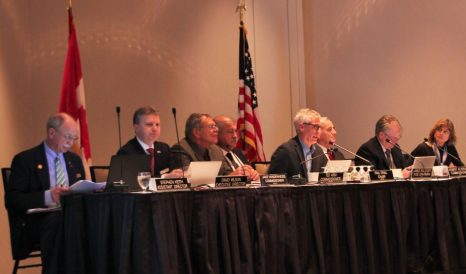
The International Pacific Halibut Commission meeting is underway in BC
The International Pacific Halibut Commission will be deciding on catch limits, other proposed changes to management and season length though Friday in Victoria, British Columbia. “The way we apportion the resource it’s been probably the subject of the most dissatisfaction on the U.S. side over the past couple of years,” said U.S. commissioner and vice-chair Jim Balsiger at the start of the meeting Monday. “All the commissioners I believe on both sides are anxious to come to grips with that, find a harvest policy and apportionment method that works for everybody that we can explain to the people who use the resource and make some progress on that.” Read the story here For agenda details of the meeting and link to the webinar, click here 10:40
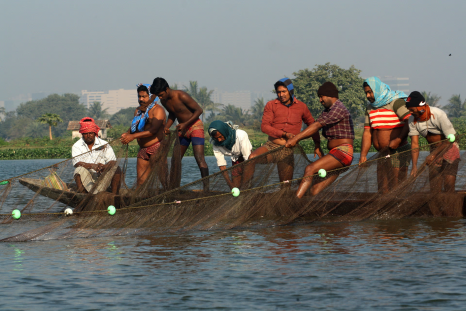
Kolkata: the city that eats fish reared on untreated wastewater sewage
It all started as an accident, if you believe the story that the fishermen of the east Kolkata wetlands tell. Around a century ago, a cultivator named Bidu Sarkar accidentally allowed untreated wastewater from Kolkata’s sewage pipes into his fish pond. Realising what had happened, Sarkar expected disaster. Instead of killing his fish, however, the water doubled his yields. When fishermen from the surrounding area came to find out more, they discovered that the combination of sewage in the water and sunshine broke down the effluent and allowed plankton, which fish feed on, to grow exponentially. Soon thousands of fish farmers had set up bheris, or fishponds, across 12,500 hectares on the eastern fringes of the city. Today, according to Dr Partha Prathim Chakrabarti, principal scientist at the Central Institute of Freshwater Aquaculture, the east Kolkata wetlands provide a living for some 50,000 cultivators and fish traders, most of them small-time private entrepreneurs who earn an income rearing 10,000 tonnes of wastewater-fed fish a year. Read the story here 09:50
Oregon lawmaker promises ‘dog fight’ over gillnets in legislature
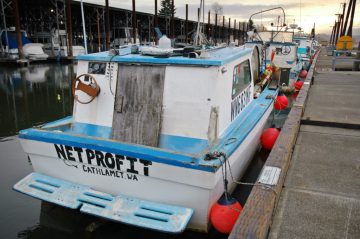 Oregon and Washington approved different plans for managing commercial fishing on the Columbia River this month, and one elected official predicted “there will be consequences” for walking away from a two-state compromise that would’ve phased out gillnets this year. Sen. Fred Girod (R-Stayton), said he was outraged by the Oregon Fish and Wildlife Commission’s vote Friday to keep allowing gillnets on the river, and he’s considering introducing either a ban on the fishing method altogether or charging a fee to commercial fisherman on the river. “We’re all trying to figure out what we can do,” Girod said. “I can guarantee there’s going to be a dog fight.” Oregon and Washington had pledged to phase-out gillnets on the main channel of the river as part of a compromise that averted a messy ballot fight in Oregon in 2012. The reforms didn’t apply to tribal fisheries. Read the story here 08:44
Oregon and Washington approved different plans for managing commercial fishing on the Columbia River this month, and one elected official predicted “there will be consequences” for walking away from a two-state compromise that would’ve phased out gillnets this year. Sen. Fred Girod (R-Stayton), said he was outraged by the Oregon Fish and Wildlife Commission’s vote Friday to keep allowing gillnets on the river, and he’s considering introducing either a ban on the fishing method altogether or charging a fee to commercial fisherman on the river. “We’re all trying to figure out what we can do,” Girod said. “I can guarantee there’s going to be a dog fight.” Oregon and Washington had pledged to phase-out gillnets on the main channel of the river as part of a compromise that averted a messy ballot fight in Oregon in 2012. The reforms didn’t apply to tribal fisheries. Read the story here 08:44
Is commercial squid fishing damaging the Massachusetts striper fishery?
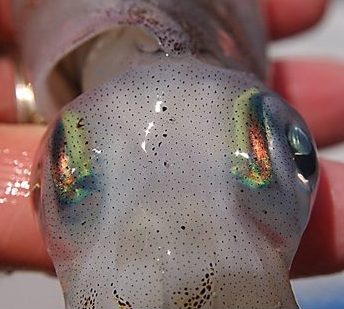 Man, I (John McMurray) hesitate to write this, because I don’t wanna cause any more economic harm to the islands’ charter fleet, by, well, saying it publicly… but I think it’s become so obvious that most striper fishermen already know it… The historically significant striped bass fishery that made Martha’s Vineyard (and Nantucket) the iconic fishing destination it is, just ain’t what it used to be.,, Over the past few years, it’s been filled with squid trawlers, sometimes a dozen, sometimes upwards of two-dozen, trawling back and forth, mowing the lawn… not just within eyesight, but often pretty damn close to the beach. (you can see where this is going, right?) Read the story here 08:00
Man, I (John McMurray) hesitate to write this, because I don’t wanna cause any more economic harm to the islands’ charter fleet, by, well, saying it publicly… but I think it’s become so obvious that most striper fishermen already know it… The historically significant striped bass fishery that made Martha’s Vineyard (and Nantucket) the iconic fishing destination it is, just ain’t what it used to be.,, Over the past few years, it’s been filled with squid trawlers, sometimes a dozen, sometimes upwards of two-dozen, trawling back and forth, mowing the lawn… not just within eyesight, but often pretty damn close to the beach. (you can see where this is going, right?) Read the story here 08:00
A legacy of hard work and devotion – Steve Parrish Sr., Supply, N.C.
 Steve Parrish Sr. always had an answer. His son, Steven Parrish, remembers his dad being able to figure out anything, answer any question he had. Parrish, who owned and operated S&S Trawl Shop in Supply for more than 30 years, died Monday at 60. Parrish leaves behind a legacy of hard work, devotion to the environment and his own take on “turtle excluder devices” (TEDs), which his son said he helped develop along with a team of scientists and other groups. Parrish was one of only two people in the state who built TEDs. Along with being instrumental in developing TEDs, Parrish grew his Supply business from a small operation in a garage to one that supplied fishing gear along the East Coast and as far away as Mexico and Honduras. Read the story here 18:50 Read Complete Obituary
Steve Parrish Sr. always had an answer. His son, Steven Parrish, remembers his dad being able to figure out anything, answer any question he had. Parrish, who owned and operated S&S Trawl Shop in Supply for more than 30 years, died Monday at 60. Parrish leaves behind a legacy of hard work, devotion to the environment and his own take on “turtle excluder devices” (TEDs), which his son said he helped develop along with a team of scientists and other groups. Parrish was one of only two people in the state who built TEDs. Along with being instrumental in developing TEDs, Parrish grew his Supply business from a small operation in a garage to one that supplied fishing gear along the East Coast and as far away as Mexico and Honduras. Read the story here 18:50 Read Complete Obituary
Commerce nominee Ross promises to protect “peer-reviewed research” at NOAA
 Under Wilbur Ross, President Trump’s nominee to lead the Department of Commerce, the National Oceanic and Atmospheric Administration (NOAA) will continue to provide accurate and factual data to the public, including peer-reviewed research, without political filters, Ross wrote last night in a letter to Senator Bill Nelson (D–FL), the ranking member of the Senate’s Committee on Commerce, Science, and Transportation. “I see no valid reason to keep peer reviewed research from the public,” Ross wrote. “To be clear, by peer review I mean scientific review and not a political filter.” Read the rest here 17:03
Under Wilbur Ross, President Trump’s nominee to lead the Department of Commerce, the National Oceanic and Atmospheric Administration (NOAA) will continue to provide accurate and factual data to the public, including peer-reviewed research, without political filters, Ross wrote last night in a letter to Senator Bill Nelson (D–FL), the ranking member of the Senate’s Committee on Commerce, Science, and Transportation. “I see no valid reason to keep peer reviewed research from the public,” Ross wrote. “To be clear, by peer review I mean scientific review and not a political filter.” Read the rest here 17:03
How Trade and Sanctions Made This Russian Fisherman a Billionaire
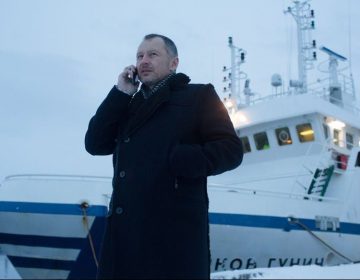 Peering into the mid-morning darkness from his sixth-floor office on Russia’s Kola Bay, Vitaly Orlov strains to see the new factory he’s just built across the water, his view obscured by a creeping cloud bank that shrouds the Arctic seascape in impenetrable gray. The $30 million structure is the crown jewel of Orlov’s Murmansk-based Norebo Holding JSC. Set amid rows of aging tenements and a wooden church, it was built to service Norebo’s fleet of fish trawlers that together hauled in almost 11 percent of the 4.75 million metric tons (5.24 million U.S. tons) the Russian Federal Fisheries Agency says were caught by Russian fisherman last year. “I’ve only ever been sure of one thing — that my life will always be tied to the north and the fishing industry,” Orlov, 51, polite and deliberate, pocket square tucked into a tailored suit, said in his first foreign media interview. Read the story here 14:42
Peering into the mid-morning darkness from his sixth-floor office on Russia’s Kola Bay, Vitaly Orlov strains to see the new factory he’s just built across the water, his view obscured by a creeping cloud bank that shrouds the Arctic seascape in impenetrable gray. The $30 million structure is the crown jewel of Orlov’s Murmansk-based Norebo Holding JSC. Set amid rows of aging tenements and a wooden church, it was built to service Norebo’s fleet of fish trawlers that together hauled in almost 11 percent of the 4.75 million metric tons (5.24 million U.S. tons) the Russian Federal Fisheries Agency says were caught by Russian fisherman last year. “I’ve only ever been sure of one thing — that my life will always be tied to the north and the fishing industry,” Orlov, 51, polite and deliberate, pocket square tucked into a tailored suit, said in his first foreign media interview. Read the story here 14:42
“Wild Alaskan” owner gets probation in waste dumping case
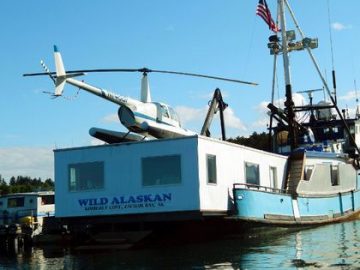 An Alaska man convicted of illegally dumping human waste into a harbour from a floating strip club he was operating has been spared serving prison time. Darren Byler instead was sentenced in Anchorage Monday to five years of probation and ordered to pay a $10,000 fine, in increments of no less than $2,000 a year, beginning this year. U.S. District Judge Sharon Gleason warned Byler that failure to pay the fine could result in him going to prison. Federal prosecutors were seeking an 18-month prison term. Byler, who plans to appeal the case, has repeatedly said he was targeted because of disapproval over the business he ran on the 94-foot “Wild Alaskan,” a converted crabbing boat. Speaking to the court before his sentence was handed up, he said the prison term sought by prosecutors was overkill. He repeatedly called it a “poop charge.” “This case was all about an emotionally charged political witch hunt” by various entities, including the Coast Guard and the prosecution, he said in a written statement released after the sentencing. Read the story here 12:30
An Alaska man convicted of illegally dumping human waste into a harbour from a floating strip club he was operating has been spared serving prison time. Darren Byler instead was sentenced in Anchorage Monday to five years of probation and ordered to pay a $10,000 fine, in increments of no less than $2,000 a year, beginning this year. U.S. District Judge Sharon Gleason warned Byler that failure to pay the fine could result in him going to prison. Federal prosecutors were seeking an 18-month prison term. Byler, who plans to appeal the case, has repeatedly said he was targeted because of disapproval over the business he ran on the 94-foot “Wild Alaskan,” a converted crabbing boat. Speaking to the court before his sentence was handed up, he said the prison term sought by prosecutors was overkill. He repeatedly called it a “poop charge.” “This case was all about an emotionally charged political witch hunt” by various entities, including the Coast Guard and the prosecution, he said in a written statement released after the sentencing. Read the story here 12:30
New England Fishery Management Council meeting in Portsmouth January 24 thru 26, 2017
 The New England Fishery Management Council will be meeting in Portsmouth N.H. at the Sheraton Harborside. To read the final agenda, click here Register click here to listen live via webinar. 12:06
The New England Fishery Management Council will be meeting in Portsmouth N.H. at the Sheraton Harborside. To read the final agenda, click here Register click here to listen live via webinar. 12:06
Tax Incentives Could Help North Pacific Fishing Fleet Rebuilders, Otherwise, Gulf Coast Builders May Have A Competitive Edge
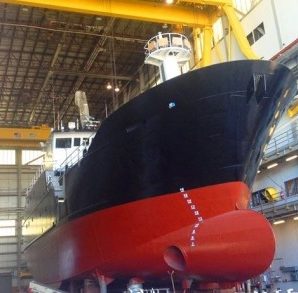 The Seattle-based North Pacific fishing fleet is expected to get $1.6 billion in upgrades or rebuilding over the next decade, but in-state ship builders have been capturing only about a third of such business so far, and cheaper Gulf Coast competitors could eat their lunch as the stakes grow. Washington maritime industry leaders say bipartisan HB 1154 could help provide a net big enough for the state to harvest more of that economic growth. “We can’t miss this opportunity,” Keith Whittemore said. “The boats have to be built in the U.S…but they don’t have to be built in Washington.” Whittemore is the executive vice president of business development for Vigor Industrial Shipyards, a shipbuilding and repair company with 12 locations and 2,500 employees in the Pacific Northwest and Alaska. Read the story here 11:31
The Seattle-based North Pacific fishing fleet is expected to get $1.6 billion in upgrades or rebuilding over the next decade, but in-state ship builders have been capturing only about a third of such business so far, and cheaper Gulf Coast competitors could eat their lunch as the stakes grow. Washington maritime industry leaders say bipartisan HB 1154 could help provide a net big enough for the state to harvest more of that economic growth. “We can’t miss this opportunity,” Keith Whittemore said. “The boats have to be built in the U.S…but they don’t have to be built in Washington.” Whittemore is the executive vice president of business development for Vigor Industrial Shipyards, a shipbuilding and repair company with 12 locations and 2,500 employees in the Pacific Northwest and Alaska. Read the story here 11:31
NOAA Quietly Deletes Apology For Sharing Anti-Trump Facebook Post
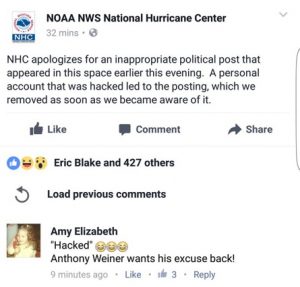 A branch of the National Oceanic and Atmospheric Administration (NOAA) responsible for tracking hurricanes apologized Saturday for sharing a Facebook post critical of President Trump. The National Hurricane Center (NHC), rather surprisingly, deleted the apology from its Facebook page, which claimed a “hacked” personal account was responsible for sharing a post by Vermont Sen. Bernie Sanders. NHC’s Facebook page shared a Sanders post highlighting Saturday’s march in Washington, D.C., in protest to Trump taking office. NHC then quietly deleted off its Facebook account, but not before meteorologist Dr. Ryan Maue captured a screenshot. Read the rest here 10:59
A branch of the National Oceanic and Atmospheric Administration (NOAA) responsible for tracking hurricanes apologized Saturday for sharing a Facebook post critical of President Trump. The National Hurricane Center (NHC), rather surprisingly, deleted the apology from its Facebook page, which claimed a “hacked” personal account was responsible for sharing a post by Vermont Sen. Bernie Sanders. NHC’s Facebook page shared a Sanders post highlighting Saturday’s march in Washington, D.C., in protest to Trump taking office. NHC then quietly deleted off its Facebook account, but not before meteorologist Dr. Ryan Maue captured a screenshot. Read the rest here 10:59
White Spot Disease: Gold Coast prawn industry in ruins as 1500 tonnes of seafood left to rot
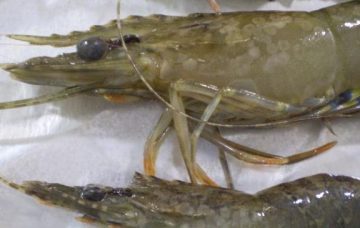 About 1500 tonnes of poisonous prawns are rotting in ponds in the northern Gold Coast and the State Government has no idea what to do about it. The tiger prawns have been decaying in 112 ponds in Alberton and Woongoolba over the past month after Biosecurity ordered they be killed to help get on top of the white spot disease crisis that has ravaged the industry. Angry farmers say their hands are tied as they risk polluting major waterways and cruelling other industries if they release the dead prawns, killed by 2.8 million litres of chlorine. In addition to the prawns, some farmers were also worried small live crabs may have escaped the ponds when they were disinfected last month and carried the disease into rivers. Read the story here 10:27
About 1500 tonnes of poisonous prawns are rotting in ponds in the northern Gold Coast and the State Government has no idea what to do about it. The tiger prawns have been decaying in 112 ponds in Alberton and Woongoolba over the past month after Biosecurity ordered they be killed to help get on top of the white spot disease crisis that has ravaged the industry. Angry farmers say their hands are tied as they risk polluting major waterways and cruelling other industries if they release the dead prawns, killed by 2.8 million litres of chlorine. In addition to the prawns, some farmers were also worried small live crabs may have escaped the ponds when they were disinfected last month and carried the disease into rivers. Read the story here 10:27
Study: Musculoskeletal Disorders in Northeast Lobstermen
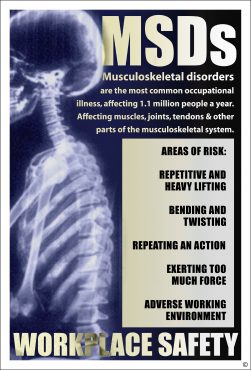 Abstract- Background – The objective of this study was to report on the prevalence of musculoskeletal pain in lobstermen in the Northeast United States. Methods – Crews were randomly selected from those licensed to fish in Maine and Massachusetts and followed prospectively. The survey utilized a Nordic Musculoskeletal Questionnaire format to characterize musculoskeletal disorders. Results – A total of 395 individuals participated. One half of the respondents reported low back pain. Back pain was attributed to or exacerbated by lobstering. Low back pain was prevalent among both captains and sternmen, while sternmen reported more hand/wrist pain than captains. Multiple locations for pain were common in individual subjects. Conclusions – Equipment or technology to assist material handling should be a priority, as the body segments with high prevalence of pain (back, hand/wrists, shoulders, knees) are all affected by the repetitive and forceful handling of the lobster traps. Read the study here 09:17
Abstract- Background – The objective of this study was to report on the prevalence of musculoskeletal pain in lobstermen in the Northeast United States. Methods – Crews were randomly selected from those licensed to fish in Maine and Massachusetts and followed prospectively. The survey utilized a Nordic Musculoskeletal Questionnaire format to characterize musculoskeletal disorders. Results – A total of 395 individuals participated. One half of the respondents reported low back pain. Back pain was attributed to or exacerbated by lobstering. Low back pain was prevalent among both captains and sternmen, while sternmen reported more hand/wrist pain than captains. Multiple locations for pain were common in individual subjects. Conclusions – Equipment or technology to assist material handling should be a priority, as the body segments with high prevalence of pain (back, hand/wrists, shoulders, knees) are all affected by the repetitive and forceful handling of the lobster traps. Read the study here 09:17
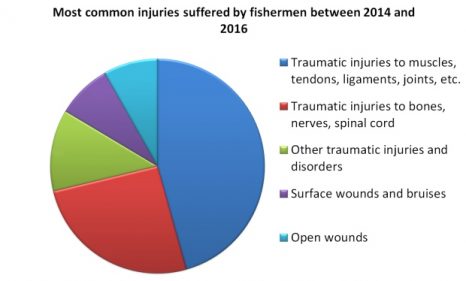
Nova Scotia’s deadliest industry slowly becomes safer
It is one of the most mundane tasks on a fishing boat: tying up the bumper balloons that prevent the vessel from crunching into the wharf when it docks. But for fisherman Mitch MacDonald it proved life-altering. For 10 years he fastened them with little problem. That is until last May, when his boat pitched unexpectedly and a balloon fell overboard, the rope sawing through his left index finger. “It pretty much burnt right through my finger and took the end of my finger off overboard,” he said. MacDonald has not regained the full use of his hand. The injury cost him thousands of dollars in lost income as he had trouble holding onto things and couldn’t work the rest of the fishing season. He is not alone. In 2016 there were 224 injuries on fishing boats, according to the Workers’ Compensation Board of Nova Scotia, but good news is the numbers are declining. Six years ago 351 injuries were reported. Read the story here 08:37
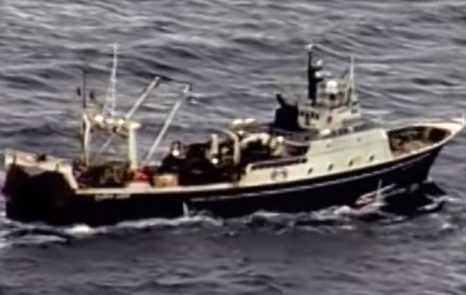
Fishing Company of Alaska is sold, ending a turbulent run in North Pacific harvests
Renton-based Fishing Company of Alaska has sold its three factory trawlers and catch quotas to two other seafood companies, a move that will end more than three decades of its sometimes turbulent operations in the North Pacific seafood industry. The sales agreement to Ocean Peace and O’Hara Corporation was announced Friday in an email by a Fishing Company of Alaska executive to other industry officials that was obtained by The Seattle Times. A sale price was not disclosed. Mike Faris, chief executive of Seattle-based Ocean Peace, confirmed that his company will acquire two Fishing Company of Alaska vessels. Frank O’Hara Jr., executive vice president of O’Hara Corporation, said his company will acquire the other vessel and half of the fishing quotas to harvests. He said these quotas will give his company a more diverse harvest that includes more higher-priced species. Fishing Company of Alaska, which once had a fleet of more than six vessels, was an important player in the trawl harvests that unfold in the Gulf of Alaska, the Bering Sea and off the Aleutian Islands. But Fishing Company of Alaska’s fleet has shrunk over time, in part due to high-seas disasters. Those include the 2007 sinking of the Alaska Ranger that killed five crew and the 2016 demise of the Alaska Juris, which did not result in loss of life but is the focus of a Coast Guard investigation. Read the story here 19:21
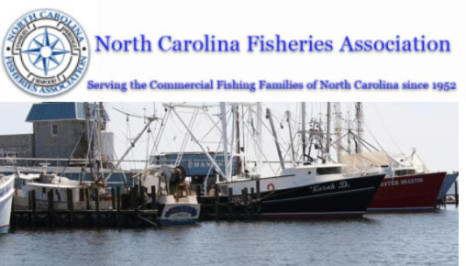
North Carolina Fisheries Association Weekly Update for January 23, 2017
Click here to read the Weekly Update, to read all the updates, Click here 16:15
Are the Feds gonna let Carlos cop a plea? Trial pushed back again!
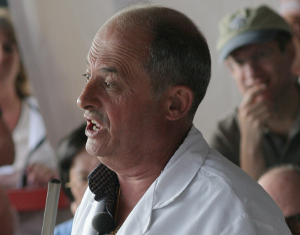 Indicted New Bedford scallops magnate Carlos “Codfather” Rafael has asked the court to postpone his upcoming trial in part to pursue talks with prosecutors about “resolving” the matter, court documents show. One of Rafael’s attorneys, William Kettlewell, asked the Massachusetts federal court of judge William G. Young to postpone Rafael’s Feb. 13 trial to at least March 20. Young granted the order. The delay, the second in recent months, is required as Kettlewell is expected to represent a different client in a two-week trial beginning on Jan. 30, the lawyer wrote. But, that time can also be used for negotiations with prosecutors about a possible settlement. Read the story here – The federal trial of New Bedford fishing kingpin Carlos Rafael has been pushed back more than a month to March amid indications that Rafael is looking for a deal from federal prosecutors. Read the story here 15:49
Indicted New Bedford scallops magnate Carlos “Codfather” Rafael has asked the court to postpone his upcoming trial in part to pursue talks with prosecutors about “resolving” the matter, court documents show. One of Rafael’s attorneys, William Kettlewell, asked the Massachusetts federal court of judge William G. Young to postpone Rafael’s Feb. 13 trial to at least March 20. Young granted the order. The delay, the second in recent months, is required as Kettlewell is expected to represent a different client in a two-week trial beginning on Jan. 30, the lawyer wrote. But, that time can also be used for negotiations with prosecutors about a possible settlement. Read the story here – The federal trial of New Bedford fishing kingpin Carlos Rafael has been pushed back more than a month to March amid indications that Rafael is looking for a deal from federal prosecutors. Read the story here 15:49
UNNAMED SOURCE: Career EPA Staffers will undermine Trump, will leak info to enviro groups and the media
 An unnamed Environmental Protection Agency (EPA) source warned that agency employees will leak information about “actions they deem ill-advised or illegal” to environmental groups and the media, Politico reports. The unnamed career staffer, whose identity Politico keeps anonymous, warned EPA employees “who stay to fight actions they deem ill-advised or illegal by quietly providing information of what is happening inside their agencies to advocacy groups and the media,” Politico reported. Employees are likely to leak to environmental groups and sympathetic media outlets critical of President Trump’s agenda. Trump plans to repeal EPA regulations aimed at tackling global warming and may cut the agency’s budget. Trump is also expected to sign an executive order freezing hiring across federal agencies, including the EPA. Politico reports that the plan is already angering many federal employees. Read the rest here 15:28
An unnamed Environmental Protection Agency (EPA) source warned that agency employees will leak information about “actions they deem ill-advised or illegal” to environmental groups and the media, Politico reports. The unnamed career staffer, whose identity Politico keeps anonymous, warned EPA employees “who stay to fight actions they deem ill-advised or illegal by quietly providing information of what is happening inside their agencies to advocacy groups and the media,” Politico reported. Employees are likely to leak to environmental groups and sympathetic media outlets critical of President Trump’s agenda. Trump plans to repeal EPA regulations aimed at tackling global warming and may cut the agency’s budget. Trump is also expected to sign an executive order freezing hiring across federal agencies, including the EPA. Politico reports that the plan is already angering many federal employees. Read the rest here 15:28
Beady-eyed creature, not to my taste – Looking for Wendell on Vinalhaven
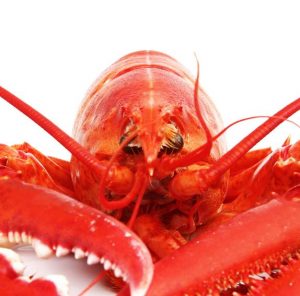 Beady eyes stared back at me. As I looked at it I felt repulsed and yet sad. I didn’t really want anything to do with it and yet I wanted to save it from its fate. I stood back and let others handle it. There was no way I was going to get anywhere near it. Not that it could really hurt me. It was bound and so could do no one any harm. Just the same, I kept my distance. With a slight plop, it was dropped into a large pot of boiling water – the beginning of a lobster dinner. That was my first experience with these large marine crustaceans. We had traveled to Maine on vacation and had decided to visit the Vinalhaven Island. But neither the rich history, nor the lobster, is what took us to Vinalhaven for the one and only time. Family was why the decision was made to venture out to the island. An older cousin on Dad’s side lived there. Dad had met him when he was a boy after Grandpa Norwood had died. He had come to visit the family in Massachusetts and to offer to adopt and raise my father. While Grandma turned down the offer, Dad had remembered Wendell. Read the story here 14:34
Beady eyes stared back at me. As I looked at it I felt repulsed and yet sad. I didn’t really want anything to do with it and yet I wanted to save it from its fate. I stood back and let others handle it. There was no way I was going to get anywhere near it. Not that it could really hurt me. It was bound and so could do no one any harm. Just the same, I kept my distance. With a slight plop, it was dropped into a large pot of boiling water – the beginning of a lobster dinner. That was my first experience with these large marine crustaceans. We had traveled to Maine on vacation and had decided to visit the Vinalhaven Island. But neither the rich history, nor the lobster, is what took us to Vinalhaven for the one and only time. Family was why the decision was made to venture out to the island. An older cousin on Dad’s side lived there. Dad had met him when he was a boy after Grandpa Norwood had died. He had come to visit the family in Massachusetts and to offer to adopt and raise my father. While Grandma turned down the offer, Dad had remembered Wendell. Read the story here 14:34
DFO bust targets 12 year old boy for catching and selling a few smelt
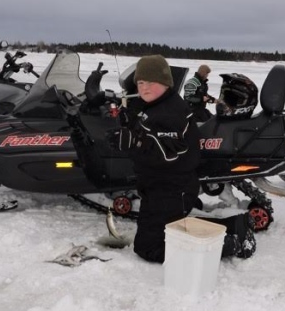 A Gander Bay South man says his 12-year-old son was unfairly targeted by a Department of Fisheries and Oceans sting over $20 in smelt. Donnie Harris told CBC News his son, Jayden, has been catching and selling smelt for the last few years — for just $2 a dozen — and this year posted an ad on a classified website using his father’s account. Jayden said he hoped to attract a few more customers with the ad on the website. “I wanted to get some money to buy an ice shelter,” Last Wednesday, Jayden’s ad prompted an email from a “Bob Smith,” requesting 10 dozen — four fresh, six frozen — and said he’d be by around the next afternoon. The next afternoon, with Jayden back in school, Smith stopped by to pick up the fish. Harris said they chatted for a little while about Jayden’s love of fishing. “So he knew, even before he done what he done, that it wasn’t me, it was my son that he was setting up,” said Harris. Eventually, Smith paid $20 for the fish, and about five minutes later he returned — this time with a DFO truck and three officers, Read the story here 13:48
A Gander Bay South man says his 12-year-old son was unfairly targeted by a Department of Fisheries and Oceans sting over $20 in smelt. Donnie Harris told CBC News his son, Jayden, has been catching and selling smelt for the last few years — for just $2 a dozen — and this year posted an ad on a classified website using his father’s account. Jayden said he hoped to attract a few more customers with the ad on the website. “I wanted to get some money to buy an ice shelter,” Last Wednesday, Jayden’s ad prompted an email from a “Bob Smith,” requesting 10 dozen — four fresh, six frozen — and said he’d be by around the next afternoon. The next afternoon, with Jayden back in school, Smith stopped by to pick up the fish. Harris said they chatted for a little while about Jayden’s love of fishing. “So he knew, even before he done what he done, that it wasn’t me, it was my son that he was setting up,” said Harris. Eventually, Smith paid $20 for the fish, and about five minutes later he returned — this time with a DFO truck and three officers, Read the story here 13:48
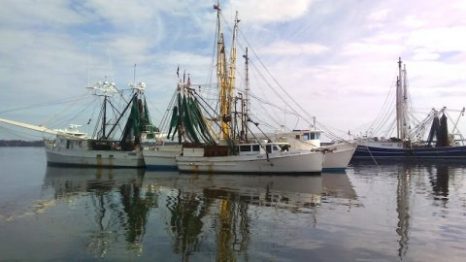
North Carolina: Small Victory for Trawling Industry – But the fight isn’t over
Around 20 trawl boats made their way up the Neuse River to anchor in front of the New Bern Convention Center on Tuesday in a show of protest to proposed rules that would severely impact and ultimately kill their industry. Inside, the spacious conference room was filled to capacity with mostly advocates and supporters of commercial fishing. Donning badges saying “Deny the petition” with a trawl boat on the back drop, the show of solidarity was palpable.,, Throughout the meeting, advisory members unraveled what could be determined as a poorly thought-out petition, pointing out large factors that were omitted – namely economics and science. One of the biggest flaws the panel pointed out repeatedly is the fact that no other environmental factors were considered in the NCWF’s accusation that trawlers were destroying the finfish population. From cormorants to construction and economics to foreign imports, there were many elements the NCWF admittedly left out. It was very clear that the group had one purpose with their proposed petition for rule-making- to shut down trawling in NC waters. Read the story here 11:36
Strong harvests, more oversight marked 2016 groundfish fisheries
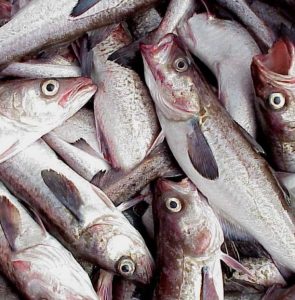 Last year was a good year overall for groundfish fisheries in the region. With a few standout harvests and favorable proposals with the Board of Fisheries, managers are feeling optimistic heading into the new year. The Alaska Department of Fish and Game oversees several groundfish fisheries within the Cook Inlet Management Area, which extends outside of Kachemak Bay to the north Gulf coast. “These fisheries include Pacific cod, sablefish, a directed pelagic shelf rockfish fishery, lingcod, and a small commissioner’s permit Pollock fishery,” said Jan Rumble, Fish and Game area groundfish management biologist. Pacific cod stood out in 2016 as it was open all year long for pot and jig gear in either a parallel or state waters fishery, Rumble said. Read the story here 11:19
Last year was a good year overall for groundfish fisheries in the region. With a few standout harvests and favorable proposals with the Board of Fisheries, managers are feeling optimistic heading into the new year. The Alaska Department of Fish and Game oversees several groundfish fisheries within the Cook Inlet Management Area, which extends outside of Kachemak Bay to the north Gulf coast. “These fisheries include Pacific cod, sablefish, a directed pelagic shelf rockfish fishery, lingcod, and a small commissioner’s permit Pollock fishery,” said Jan Rumble, Fish and Game area groundfish management biologist. Pacific cod stood out in 2016 as it was open all year long for pot and jig gear in either a parallel or state waters fishery, Rumble said. Read the story here 11:19
Board of Fish finalizes recommendations on fish habitat permitting
 The state Board of Fisheries, the body that sets regulations on state-overseen fisheries, voted to send a letter to the Legislature at its Kodiak meeting, held Jan. 10–Jan. 13 recommending the state review Title 16 of the Alaska Statute, which addresses how the commissioner of the Alaska Department of Fish and Game should issue permits in streams determined to be fish habitat. Any activity that may use, divert, obstruct or change the natural flow of a body of water determined to be fish habitat requires a permit, granted by the commissioner of Fish and Game. The current statute says the commissioner shall grant a permit unless an activity is deemed “insufficient for the proper protection of fish and game.” The request was born out of a non-regulatory proposal submitted to the board for its 2016/2017 cycle by a group of 13 citizens of various user groups in fisheries. Read the story here 09:46
The state Board of Fisheries, the body that sets regulations on state-overseen fisheries, voted to send a letter to the Legislature at its Kodiak meeting, held Jan. 10–Jan. 13 recommending the state review Title 16 of the Alaska Statute, which addresses how the commissioner of the Alaska Department of Fish and Game should issue permits in streams determined to be fish habitat. Any activity that may use, divert, obstruct or change the natural flow of a body of water determined to be fish habitat requires a permit, granted by the commissioner of Fish and Game. The current statute says the commissioner shall grant a permit unless an activity is deemed “insufficient for the proper protection of fish and game.” The request was born out of a non-regulatory proposal submitted to the board for its 2016/2017 cycle by a group of 13 citizens of various user groups in fisheries. Read the story here 09:46
‘Fish feel pain’ rhetoric is nothing but a myth
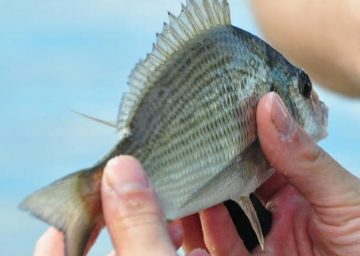 The anti-fishing brigade has once again rolled out the “fish feel pain rhetoric” in an effort to convince people that fishing is a bad thing to do. Any suggestion of equivalence between what fish and humans feel in relation to a hook lodged in the lip has been well and truly dismissed by science. The differences between humans and fish are pretty clear to most people. Fish live in a very different environment and have evolved a very different physiology to humans. Fish have tough mouths and eat hard, spiny and bony food including crabs, prawns, oysters, mussels and fish. It is simply not correct to accept that fish have a human-like capacity for feeling pain. Unfortunately this false argument is something that is continually peddled by groups with a vested interest in ending all recreational and commercial fishing. Read the story here 08:27
The anti-fishing brigade has once again rolled out the “fish feel pain rhetoric” in an effort to convince people that fishing is a bad thing to do. Any suggestion of equivalence between what fish and humans feel in relation to a hook lodged in the lip has been well and truly dismissed by science. The differences between humans and fish are pretty clear to most people. Fish live in a very different environment and have evolved a very different physiology to humans. Fish have tough mouths and eat hard, spiny and bony food including crabs, prawns, oysters, mussels and fish. It is simply not correct to accept that fish have a human-like capacity for feeling pain. Unfortunately this false argument is something that is continually peddled by groups with a vested interest in ending all recreational and commercial fishing. Read the story here 08:27







